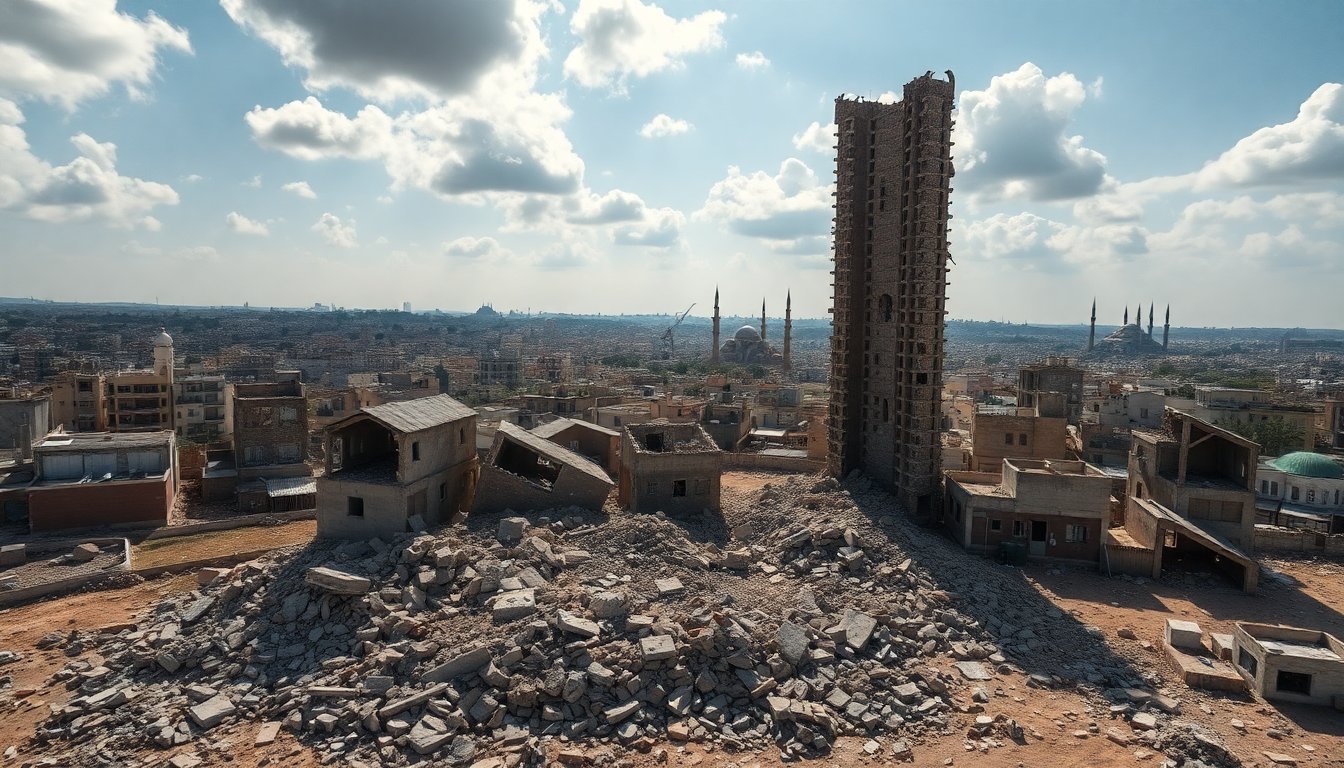Table of Contents
The recent escalation of violence in Gaza has drawn significant global attention, particularly following the Israeli forces’ destruction of the region’s tallest residential building. This incident has exacerbated the ongoing humanitarian crisis, prompting international leaders to reevaluate their strategies in response to these developments. Understanding the implications of such actions is essential for grasping the current geopolitical landscape.
Current Situation and Humanitarian Impact
The demolition of Gaza’s tallest residential building has resulted in widespread displacement and heightened anxiety among residents. Reports indicate that families received only minutes to evacuate, leading to chaos as they attempted to gather their belongings. The human toll of these military actions is substantial, affecting thousands and contributing to a rising number of casualties.
Humanitarian organizations face significant challenges in providing aid within an increasingly hostile environment, where access is severely limited. The international community is being called upon to play a more proactive role in addressing the humanitarian crisis, as the destruction of vital infrastructure complicates recovery efforts. The urgency of the situation has ignited protests and calls for immediate action from various sectors, including artists and activists, who are leveraging their platforms to advocate for peace and support for those affected.
Global Reactions and Political Ramifications
In the aftermath of the Israeli airstrikes, leaders from Arab and Muslim nations convened in Doha to discuss the implications of these attacks. This meeting highlights the increasing concern among regional powers regarding the stability of the Middle East and the potential for further escalation. The dialogue seeks to unify responses and strategize on how to effectively support Gaza while addressing broader geopolitical issues.
In the United States, attention has shifted to the potential consequences of these strikes, focusing on diplomatic efforts and the necessity for renewed dialogue among conflicting parties. The situation is being closely monitored, as it may influence future foreign policy decisions and alliances. Given the region’s volatility, a careful approach is essential, balancing humanitarian needs with political realities.
Looking Ahead: Prospects for Peace and Stability
The devastation in Gaza raises pressing questions about the future of peace in the region. As international pressure increases, there is hope for renewed negotiations aimed at establishing a lasting resolution to the conflict. However, the path to peace is fraught with challenges, including entrenched positions and ongoing violence.
For significant progress to be made, it is crucial for all parties to engage in constructive dialogue and seek common ground. The involvement of global powers and regional stakeholders will be vital in facilitating this process. As the situation continues to evolve, it remains uncertain how the international community will respond and what measures will be enacted to support the reconstruction of Gaza and the restoration of peace.


